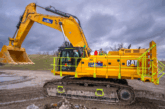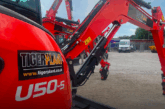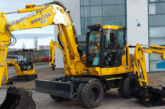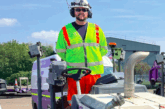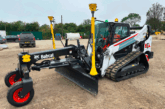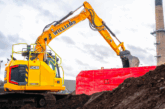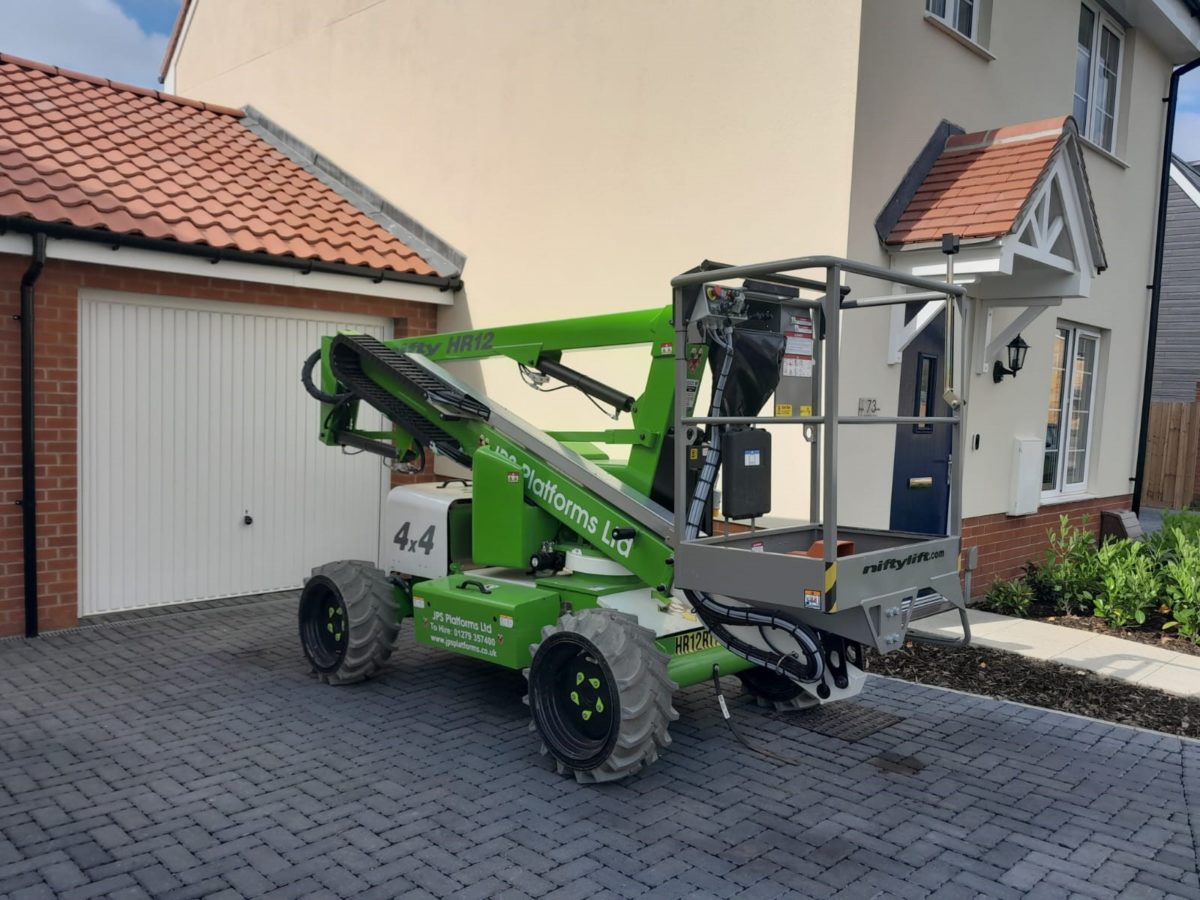
‘EMISSION’ STATEMENT
How has the lifting and access industry shifted toward a more sustainable future in the last five years?
Many climate experts claim that we only have until 2030 before we begin to hit a tipping point from which there may be no return from the damage to our planet. This is when climate change may become irreversible. Therefore, there has never been a more crucial time for individuals and businesses to do what they can to reduce their carbon footprint. This includes investing in renewable energy and clean technology.
With access to the latest technology and innovation, the lifting and access trade has an opportunity to transform the construction industry’s carbon output and pioneer sustainable solutions. Industry-leading production and hire firms should be taking this challenge on with open arms.
At its core, the lifting and access industry is focused on safety, and it is now becoming increasingly clear that the products we use must be safe for the environment as well as for users. Currently, the built environment, of which the construction sector is a crucial component, contributes approximately 40% of the UK’s carbon emissions. After the UK Government set the goal to reduce country-wide emissions by 68% by 2030, firms like JPS have begun to invest in greener solutions.
JPS Platforms, the lifting and access division of JPS, has curated a 70% electric fleet over the past five years and has noticed a concerted shift toward electric and hybrid solutions from its clients in the past year especially. Adam Hems, CEO of JPS, told us that his visit to this year’s Executive Hire Show confirmed recent observations that “financial constraints, contractual obligations and recognition of our industries impact is causing a definite increase in demand for more sustainable lifting and access machinery”.
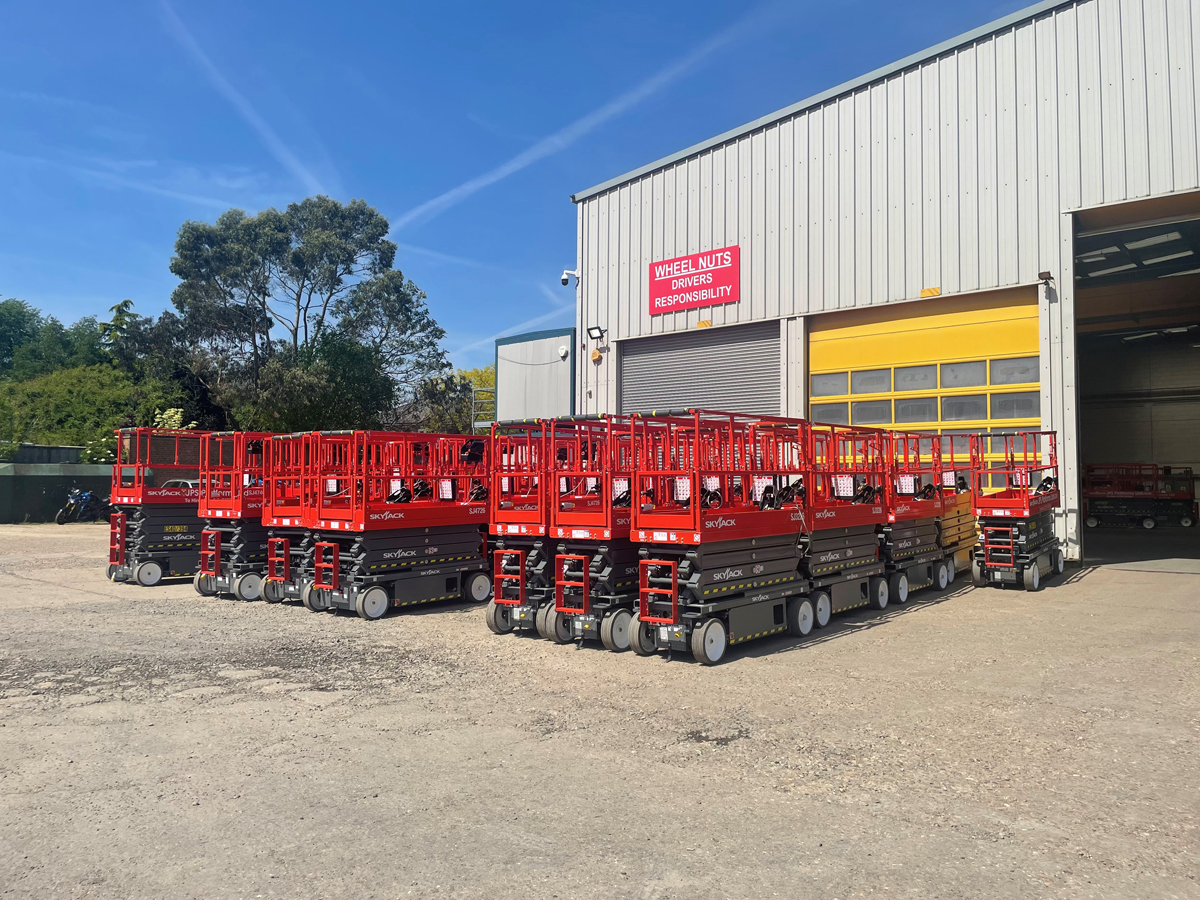
The increased demand for greener access machines has led to more advancements in equipment. As battery technology improves, more equipment can be run efficiently and effectively on electric power, while delivering the same performance as its diesel counterpart. What’s more, increased electric motor efficiency means that this equipment can now run for longer, often for whole shifts, and recharge faster.
Many manufacturers are taking advantage of recent improvements in AGM and lithium-ion battery technology, with their overarching benefits of reduced noise, lower emissions, and increased battery life. For companies like JPS, which have a focus on indoor applications, providing quieter machines that have increased working hours means that the overall completion times for client’s jobs are decreasing as works can more easily be carried out alongside each other.
On top of this, electric scissor lifts are getting bigger and are now more accessible than ever. The Dingli 2212 for example has a 22m working height on a 1.25m wide chassis, it is also outdoor rated which makes this machine even more versatile. JPS’s lifting and access fleet ranges from 3.5m low level access machines to 22m electric scissor lifts, and up to 21m hybrid boom lifts with lots in between. A recent scissor lift market research analysis found that electric scissor dominates the market and accounts for 68.7% of trade. This is expected to grow at the fastest compound annual growth rate of 7.5% between 2022 and 2029.
John Young, Director of JPS Platforms, says: “We have always been passionate about providing our customers with hassle-free, innovative and dependable services; however, it is becoming increasingly important to our clients that the machines they hire are compliant with carbon targets and have a positive impact on the environments they operate within.
“We feel we have a responsibility to ensure we have a fleet of equipment that provides our customers with a clean and sustainable solution for working at height.
“By increasing our electric fleet, ensuring all new batteries are AGM or lithium and that hybrid technology is constantly advancing we hope to transform the industry’s carbon output.
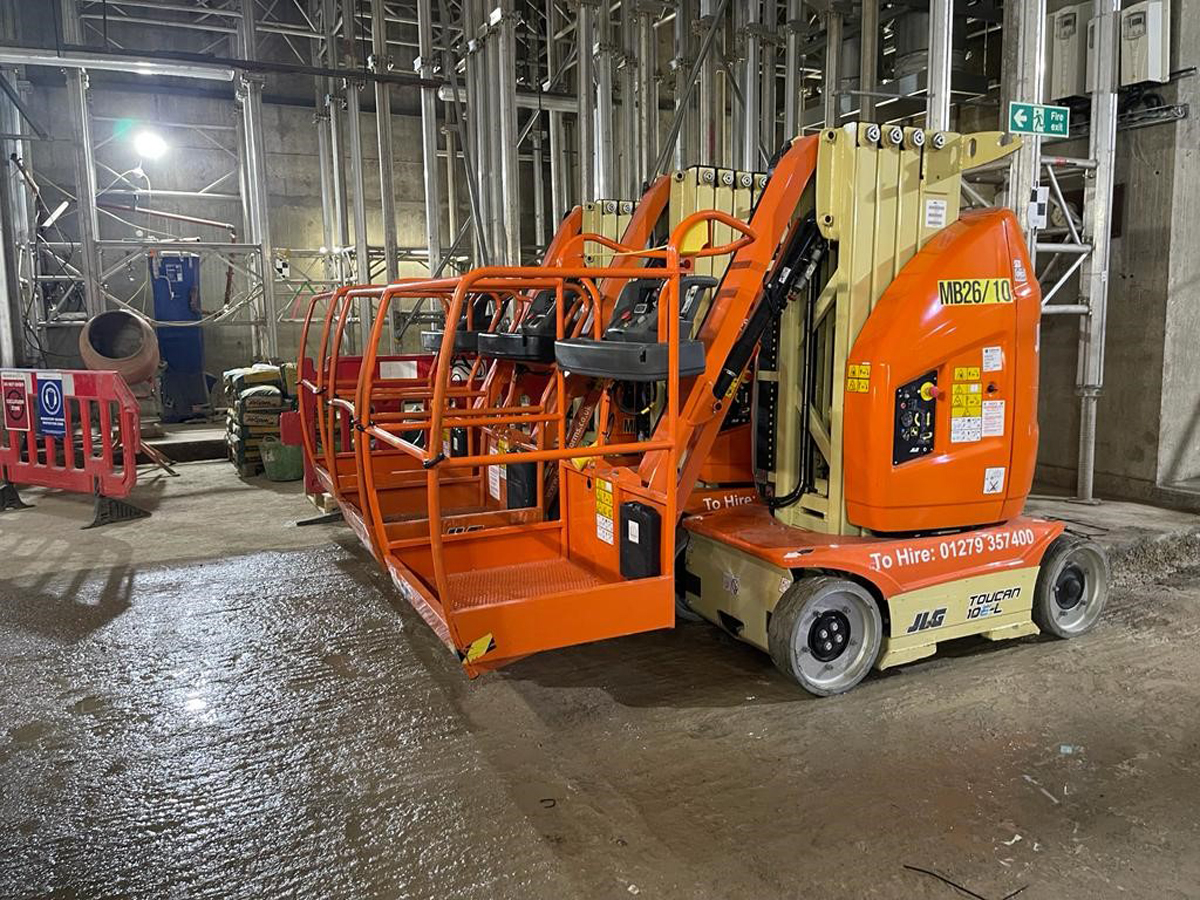
“However, we do recognise that the charging infrastructure needs some serious improvement before it can be commonplace to see electric 4×4 machines replacing their diesel counterparts. The government wants companies like ours to be pushing green alternatives into the marketplace which we have shown commitment to, but we need to see some serious investment from the powers that be to ensure that these types of products become a first port of call and not just an alternative to diesel.”
JPS has noted that some of its clients want to use these types of products, but they are held back due to the inability to successfully charge these types of machines. To solve this industry-wide issue, JPS is looking to invest in solar battery storage to provide a solution to its customers. The solar technology will top up the batteries all day enabling the powered access machines to be recharged overnight. John says: “Our aim is to keep pushing these types of products out into the market and demonstrate to end users the benefits of electrically powered machines,” declares John. “Not just from a sustainability perspective but also from an operator comfort point of view as well.”
The environmental and cost benefits of electric and hybrid plant are clear, with zero carbon emissions and significantly reduced fuel use, but sustainable solutions also have many other benefits too. With much quieter operation, and significantly less vibration, they are far more comfortable to operate, which in turn increases productivity of the workforce and results in less long-term health risk to the operator.
Investing in clean technology within the construction industry is certain to be on the rise over the next few years as the UK Government strives to meet its net zero carbon emissions goal and companies and contractors make their own in-house commitments. It will most likely be a steady process as technology continues to improve and gets rolled out across the country. Many companies may not have the financial capability to replace their current plant with cleaner alternatives which provides hire firms with an opportunity to step up and become a reliable source for greener solutions.
For further information on JPS Platforms visit https://www.jpshire.co.uk/

